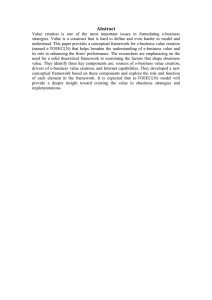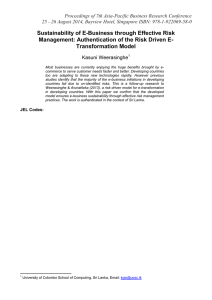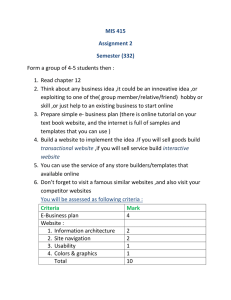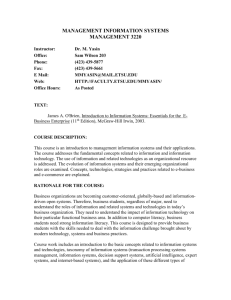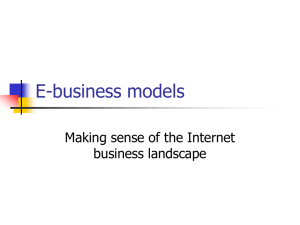Document 17541932
advertisement
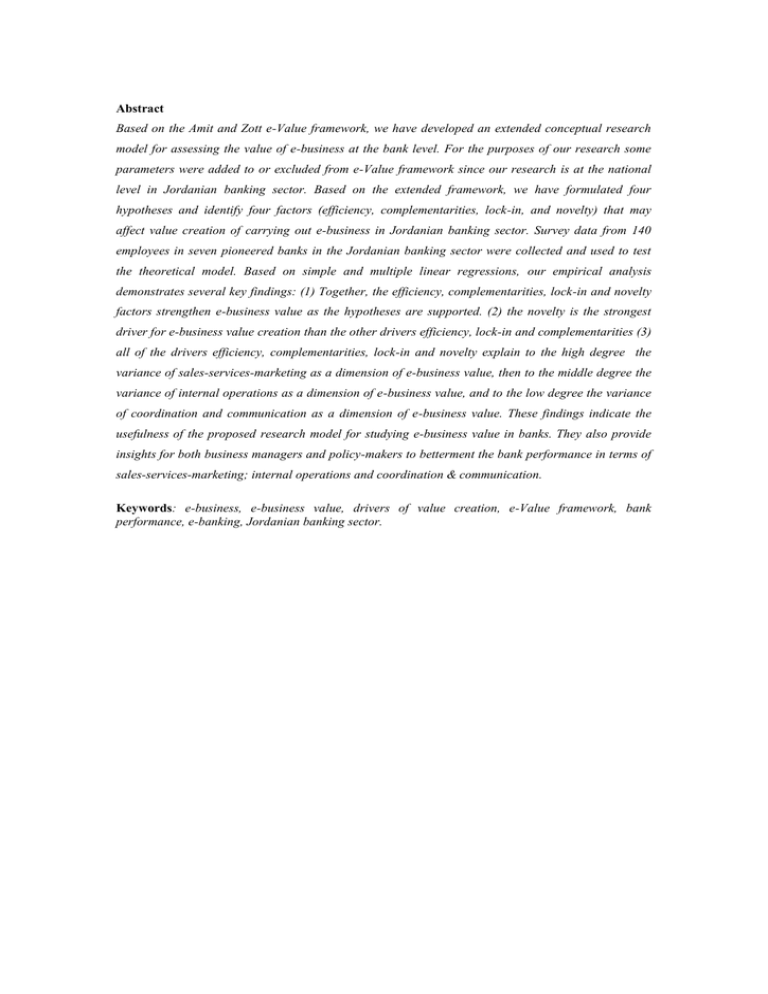
Abstract Based on the Amit and Zott e-Value framework, we have developed an extended conceptual research model for assessing the value of e-business at the bank level. For the purposes of our research some parameters were added to or excluded from e-Value framework since our research is at the national level in Jordanian banking sector. Based on the extended framework, we have formulated four hypotheses and identify four factors (efficiency, complementarities, lock-in, and novelty) that may affect value creation of carrying out e-business in Jordanian banking sector. Survey data from 140 employees in seven pioneered banks in the Jordanian banking sector were collected and used to test the theoretical model. Based on simple and multiple linear regressions, our empirical analysis demonstrates several key findings: (1) Together, the efficiency, complementarities, lock-in and novelty factors strengthen e-business value as the hypotheses are supported. (2) the novelty is the strongest driver for e-business value creation than the other drivers efficiency, lock-in and complementarities (3) all of the drivers efficiency, complementarities, lock-in and novelty explain to the high degree the variance of sales-services-marketing as a dimension of e-business value, then to the middle degree the variance of internal operations as a dimension of e-business value, and to the low degree the variance of coordination and communication as a dimension of e-business value. These findings indicate the usefulness of the proposed research model for studying e-business value in banks. They also provide insights for both business managers and policy-makers to betterment the bank performance in terms of sales-services-marketing; internal operations and coordination & communication. Keywords: e-business, e-business value, drivers of value creation, e-Value framework, bank performance, e-banking, Jordanian banking sector.
